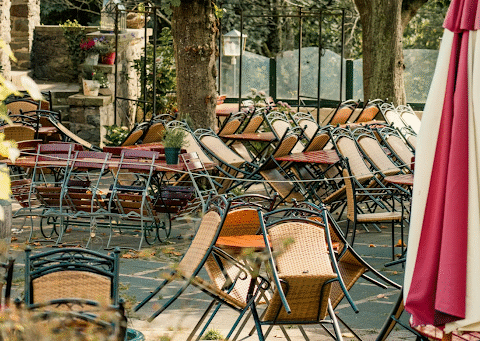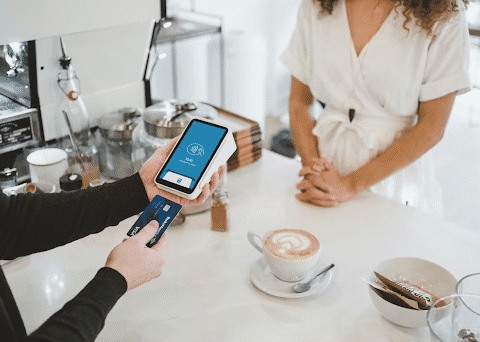Planning an event with alcohol? Here’s what you need to know about applying for a Special Occasion Permit and how to get started.
If you’re planning an event where alcohol will be served, like a wedding, fundraiser, festival, or private party, you might need a Special Occasion Permit (SOP). The permit allows individuals or organizations to legally serve or sell alcohol at a temporary event that isn’t covered under a regular liquor license.
It’s an important step to make sure your event runs smoothly and stays compliant with local liquor laws. The process might sound a little intimidating at first, but it’s actually pretty straightforward once you understand what’s required. Depending on the type of event you’re hosting and where it’s taking place, the rules and application steps can vary slightly, so it’s worth doing your homework ahead of time.
This article will walk you through everything you need to know about who needs a Special Occasion Permit, how to apply, and what to expect, so you can focus on planning an enjoyable, stress-free event.
What Is a Special Occasion Permit (SOP)?
A Special Occasion Permit (SOP) is a legal document that allows you to serve or sell alcohol at a temporary event that isn’t covered by a regular liquor license. The SOP helps make sure that alcohol service is handled responsibly and in line with local laws. Without one, serving alcohol at certain events can lead to fines, cancellations, or worse. The permit doesn’t just protect guests, it also protects you as the event organizer. It shows that you’ve followed the rules and taken the necessary steps to keep your event safe and compliant.
So, if your event includes alcohol in any form, applying for a Special Occasion Permit is an important part of your planning checklist.
Who Needs a Special Occasion Permit?
Not every event requires a Special Occasion Permit, but if you plan to serve or sell alcohol at a public or semi-public event, chances are you’ll need one. Individuals, businesses, or non-profits hosting events like weddings, corporate gatherings, fundraisers, or festivals typically fall into this category. If your event is held in a venue that doesn’t already have a liquor license, like a community hall, private residence, or outdoor space, you’ll need to apply for an SOP yourself.
Even private events with limited guest lists might require one if there’s any exchange of money, like selling drink tickets or charging for entry.
Types of Events That Require a Permit
As we’ve mentioned above, special Occasion Permits are needed for all kinds of events where alcohol is being served or sold, especially if it’s in a location that doesn’t already have a liquor license. Some common events that typically require an SOP include:
- Weddings and receptions in community halls or private venues
- Birthday or anniversary parties are held in rented spaces
- Charity fundraisers with alcohol sales or open bars
- Festivals, fairs, or cultural events open to the public
- Corporate functions like holiday parties or team events
- Sporting events where alcohol is served on-site
Private events might also need a permit if alcohol is being sold or included in ticket prices. If you’re unsure whether your event qualifies, it’s always best to check with your local liquor authority before your event.
How to Apply For an SOP
Applying for a Special Occasion Permit is simpler than it sounds, especially if you plan ahead. You will need to check with your local alcohol or liquor control authority (like the AGCO in Ontario) to understand the specific requirements in your area. Then, you’ll need to gather the key details about your event, such as date, location, estimated attendance, and how alcohol will be served or sold.
Most applications can now be submitted online, and you’ll likely need to pay a fee based on your event type and size. Be prepared to upload documents like floor plans or proof of venue rental, if needed. Once submitted, your application will be reviewed, and you may receive your permit by email or regular mail.
Processing times vary, so we recommend applying early, usually at least 10 to 30 days in advance. Once approved, post the permit at your event and make sure all alcohol service follows local rules.
What to Know After Your Permit Is Approved
Once you’ve got your Special Occasion Permit approved, you’re officially cleared to serve or sell alcohol, but there are still a few responsibilities to keep in mind. First, make sure your permit is displayed clearly at the event. This is a must and allows your event to be compliant with Canadian laws.
The next thing you’ll need to do is confirm that all alcohol service follows the rules outlined by your local liquor authority, which might include age checks, closing times, and responsible serving practices. You may be required to serve only from approved locations or use licensed bartenders.
Also, you should remind guests and eventgoers to keep alcohol within designated areas and avoid any over-service or unauthorized sales. Some events may require security or insurance, but that depends on how large your event is and where it’s located.
Applying for a Special Occasion Permit might seem like one more item on your event planning checklist, but it’s an important one. Getting the proper permit not only keeps your event legal, but it also helps make sure your guests have a safe and enjoyable experience.
Most of it can be done online, and once it’s approved, you’ll have peace of mind knowing your event is fully compliant. With everything in place, you can focus on creating an event that everyone will enjoy.




